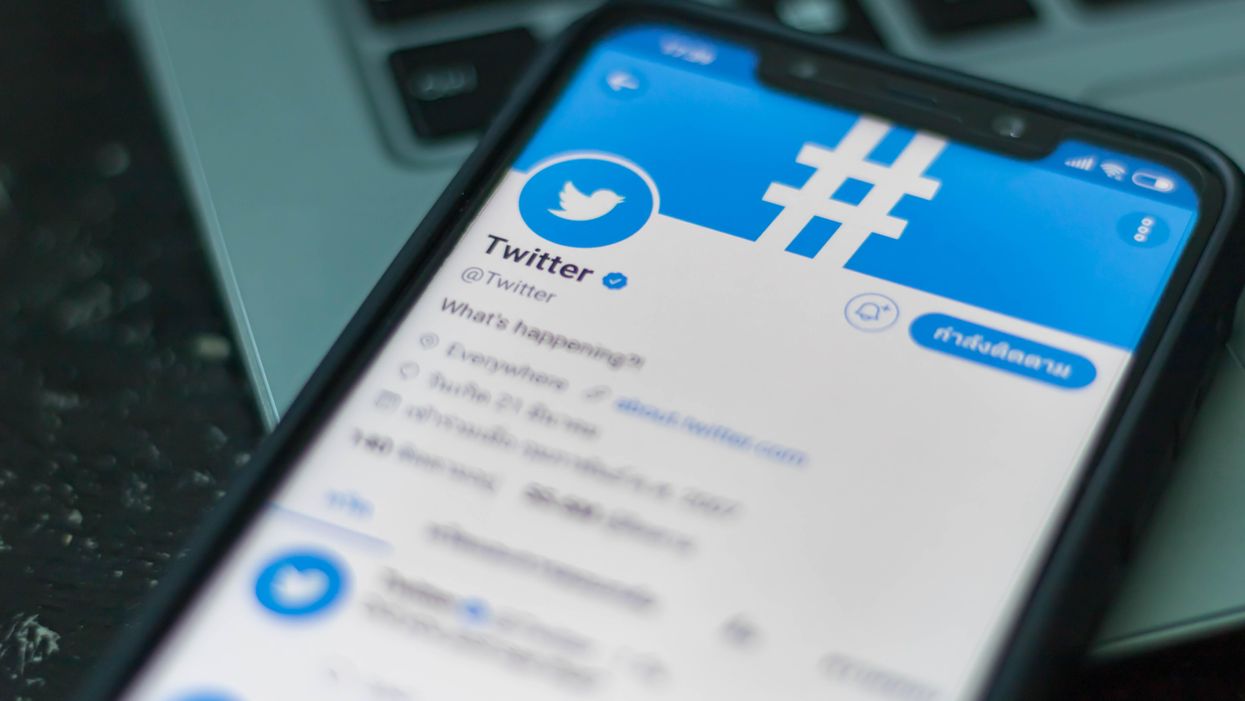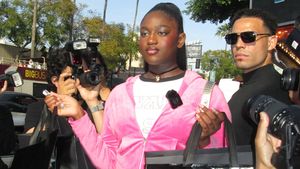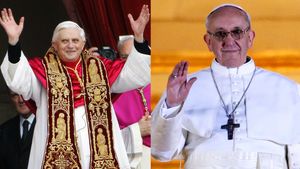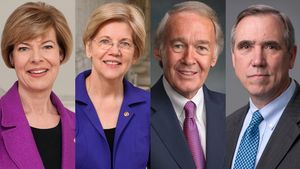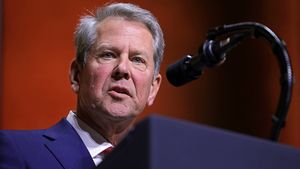(CNN) — For years, Twitter has been a leader in countering misinformation and protecting elections. It was often ahead of its peers in creating and enforcing new policies, and it was the first major platform to ban former President Donald Trump after the Capitol insurrection, pushing others to follow suit.
But concerns are growing that tumult inside Twitter in the first week after it was acquired by Elon Musk could weaken its safeguards for elections, just before the midterms are set to take place.
Musk's Twitter laid off thousands of employees across the company last week, including cuts to its public policy and trust and safety teams, and extensive cuts to its curation team, which helps elevate reliable information on the platform about elections and other news events. The chaos was only amplified over the weekend as Twitter first appeared to roll out, and then postponed, a controversial plan allowing any user to pay to be verified — a proposal critics had said would cause confusion during the midterms about which accounts and tweets users could trust.
Musk promised not to alter any of Twitter's content policies until after the midterms. But the changes he has already made to the company have left it weakened and vulnerable, said Paul Barrett, deputy director of New York University's Stern Center for Business and Human Rights.
"The Musk-induced Category 5 hurricane at Twitter has the potential to disrupt the midterms," Barrett said, "because large numbers of Twitter employees who otherwise would be paying attention to misuse of the platform have already been fired, are worrying that they're next on the chopping block, or are distracted by the plight of co-workers being ushered out the door."
The threats Twitter could face on Election Day and its aftermath include known risks, such as misleading claims of election fraud, attempts at voter intimidation or violent rhetoric, Barrett said. But the disarray at Twitter also means the company will be even less equipped to identify and counter novel manipulation tactics for which there is no playbook, he added.
US officials overseeing the election say there is so far no evidence of any specific or credible threats to election infrastructure, but made clear private platforms such as Twitter are on their own, and responsible for managing any misinformation that may appear on their sites.
"We don't flag anything to platforms around misinformation, disinformation," Jen Easterly, director of the US government's Cybersecurity and Infrastructure Security Agency (CISA), told CNN Saturday evening. "That is entirely up to those platforms — Twitter, social media — based on their terms of service and how they enforce it."
Deep cuts
Twitter has said it's still committed to protecting elections and that the job cuts last week — which struck half of the company's workforce — were less extensive in its trust and safety team, where about 15% of workers were let go.
Twitter didn't respond to a request for comment for this story, and attempts to reach one company spokesperson resulted in an email bounce-back message that implied they were no longer with the company. The layoffs appear to have hit large swaths of Twitter's PR team, with numerous officials saying their time at the company has ended, including Brian Poliakoff, Twitter's global head of corporate and customer communications, and Julie Steele, its former head of internal communications.
But the company has been largely opaque about how exactly the layoffs may hinder Twitter's ability to combat misinformation. When addressing the layoffs Friday, Yoel Roth, the company's head of safety and integrity, said 80% of Twitter's incoming content moderation volume had been "completely unaffected," as was the daily volume of actions Twitter took to moderate content. But Roth was describing Twitter's ability to moderate content in relation to an internal policy change made the week prior, not staffing cuts, and the period he referenced ended prior to the mass layoffs of Nov. 3 and 4.
"With early voting underway in the US, our efforts on election integrity — including harmful misinformation that can suppress the vote and combatting state-backed information operations — remain a top priority," said Yoel Roth, the company's head of safety and integrity, on Friday evening.
But while Twitter's cuts to its content moderation workforce may have been less severe than at other parts of the company, the broad layoffs in certain cases eliminated whole teams, some with important roles to play in election coverage.
One of them was reportedly Twitter's curation team, according to tweets by ex-employees, including Andrew Haigh, Twitter's former senior curation lead for Europe, the Middle East and Africa. The curation team had been responsible for the site's Moments feature, which showcased important world events and explained to users why certain topics were trending.
In recent years, Moments were increasingly being used to debunk misinformation or highlight major news stories, according to a person familiar with the inner workings of the curation team — in other words, the person said, "the type of coverage you'd want on election day."
Civil rights leaders have slammed the layoffs, saying that no matter what Twitter claims, the reduced headcount will impair Twitter's ability to enforce its election policies even if the rules themselves have not changed.
"He cannot enforce content moderation policies if he doesn't have the staff to do so," said Jessica González, co-CEO of Free Press. (Roth said Friday evening that "front-line moderation staff" were among the least affected by the cuts.)
A messy product rollout
Civil rights groups have spearheaded a campaign targeting Twitter's largest advertisers, calling on them to pause their ad spend on the platform. Already this past week, major brands including General Mills and Audi have suspended their Twitter advertising, contributing to what Musk has called a steep revenue decline at the company.
To shore up Twitter's finances, Musk has proposed a paid verification feature enabling any user to pay $8 a month to receive a blue check mark on their profiles. But that too could lead to its own form of election chaos by making it harder to weed out misinformation.
Twitter on Saturday appeared to roll out roll out an app update for iOS users on Saturday that suggested the feature was already live for users in the United States and other English-speaking countries.
However, the product didn't match the marketing — users found that while they could pay for the subscription service, Twitter Blue, the promised check marks did not appear on user profiles.
Esther Crawford, a director of product management at Twitter, confirmed the service was not yet live, writing on Saturday in a tweet: "The new Blue isn't live yet — the sprint to our launch continues but some folks may see us making updates because we are testing and pushing changes in real-time."
The company delayed the rollout of account verifications for its paid Twitter Blue subscription plan until after the midterm elections, a source with knowledge of the decision confirmed to CNN.
Policy whiplash
Even if Musk's seemingly rushed decisions don't complicate Election Day itself, they could introduce added uncertainty in the critical period afterward as votes are counted -- not to mention the 2024 presidential campaign, which could kick off later this month as Trump reportedly nears a formal announcement of his run.
The sprint to roll out an untested feature opens the door to unintended consequences following the election, such as the potential impersonation of election officials, said civil rights groups.
"Any right-wing troll can pay $8... get a blue check mark, and then change their name to CNN or Georgia's secretary of state," Rashad Robinson, CEO of Color of Change, told reporters on the call.
Musk has argued that charging for a blue check mark will fight spammers by increasing their costs. But misinformation researchers have told CNN well-resourced adversaries, such as highly motivated state-backed actors looking to meddle in elections, would simply see the paid verification as another cost of doing business.
Chris Krebs, the former CISA director, said Musk's proposal changes the meaning of verification and alters the information that the symbol conveys to the user. "The verified logo has been a marker of trust I.e. 'We've confirmed the person is who they say they are,'" Krebs tweeted. "Now it's 'we're taking their $ & their word for it.'"
Those complications became apparent over the weekend after a number of celebrities, including comedians Sarah Silverman and Kathy Griffin, used their verified status to mock the billionaire's plan, by renaming themselves Elon Musk and changing their profiles to resemble his.
Hours later, Musk walked back one of his signature pledges — that permanent bans would be "extremely rare" under his rule. He tweeted: "Going forward, any Twitter handles engaging in impersonation without clearly specifying 'parody' will be permanently suspended," and without warning.
While the abrupt and sweeping policy change announced in a weekend tweet appears likely to cover accounts impersonating election officials, Musk did not explain the change as a response to election security concerns.
The shakeup at Twitter has turned the company itself into an election wildcard.
"My instinct is that the actual impacts of these changes may take a bit longer to be felt," John Scott-Railton, a cybersecurity and disinformation researcher at the University of Toronto's Citizen Lab. "But they are going to be dramatic."
The-CNN-Wire
™ & © 2022 Cable News Network, Inc., a Warner Bros. Discovery Company. All rights reserved.
- Zoe Saldana - Advocate Channel ›
- Joe Biden: Trump and Followers Are Undermining American ... ›
- How Do Abortion Bans Impact Incarcerated Women? - Advocate ... ›
- Why Investors Aren't Going Green - Advocate Channel ›
- Thousands of Twitter Employees Are Laid Off After Elon Musk Takes Over - Advocate Channel ›
- As Twitter Staff Clears Out, What Will Happen to the Platform? - Advocate Channel ›
- Twitter Sued by Landlord for Allegedly Failing to Pay Rent - Advocate Channel ›
